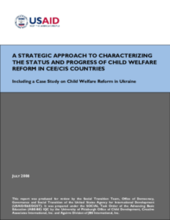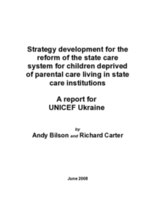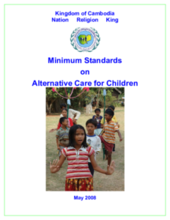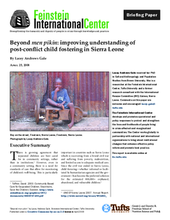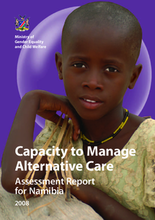Displaying 2091 - 2100 of 2223
The purpose of this report is to create a strategy for assessing the status and progress of child welfare reform in CEE/CIS countries using the best available quantitative and qualitative information.
This report written for UNICEF identifies the key elements for a strategy to take forward the Government of Ukraine’s programme for the reform of child welfare.
A random sample of licensed foster parents caring for children with disabilities in a major Canadian city was asked “what are the problems you encounter fostering a child with a disability?”
This document includes the Minimum Standards on Alternative Care for Children set out by the Government of Cambodia, including both the Minimum Standards for Residential Care for Children and the Minimum Standards on Alternative Care for Children in the Community.
Examines the challenges posed in monitoring and ensuring child protection in informal and formal fostering in post-conflict areas.
On 13 February 2008 Prime Minister Kevin Rudd made a formal apology to Australia’s Indigenous peoples, particularly to the Stolen Generations whose lives had been blighted by past government policies of forced child removal and Indigenous assimilation.
International Social Service’s first segment of the series addresses the historical background and the principles and objectives of the Guidelines
This report prepared for the Ministry of Gender Equality and Child Welfare (MGECW) with financial support from UNICEF Namibia assesses the country’s capacity to manage alternative care systems for children.
Examines the outcomes of family strengthening model in Uganda.
In this chapter of the Handbook of Attachment, the authors discuss young children in foster care, as well as those adopted both nationally and internationally.

